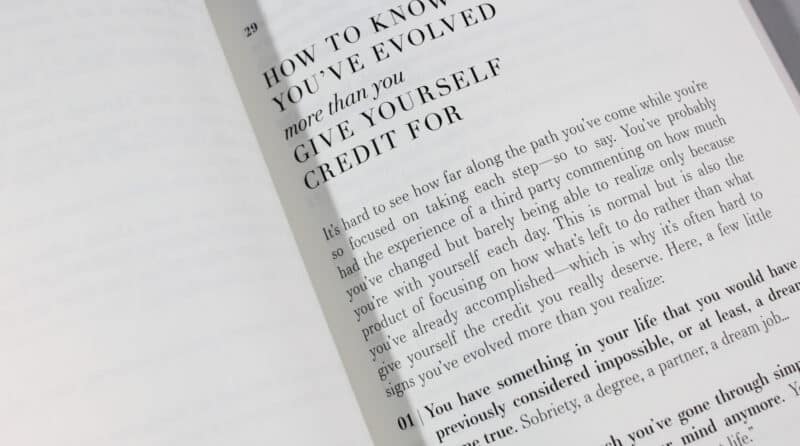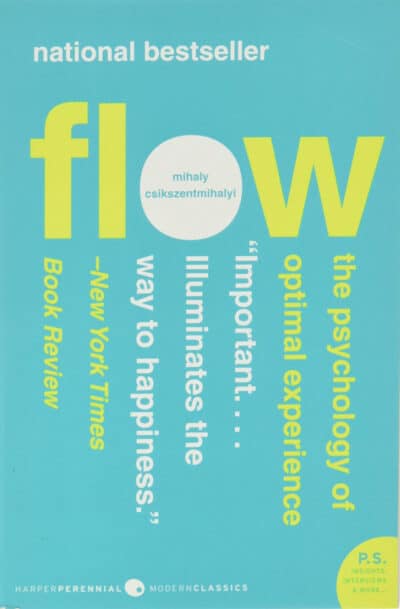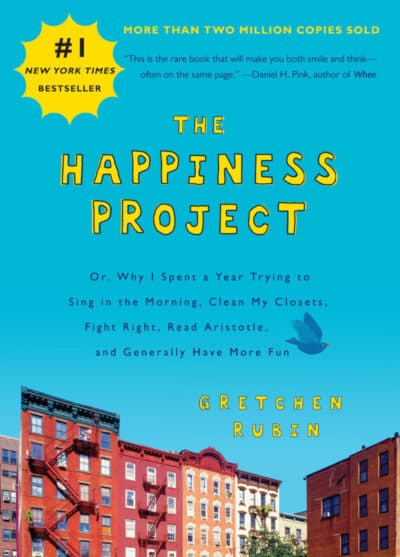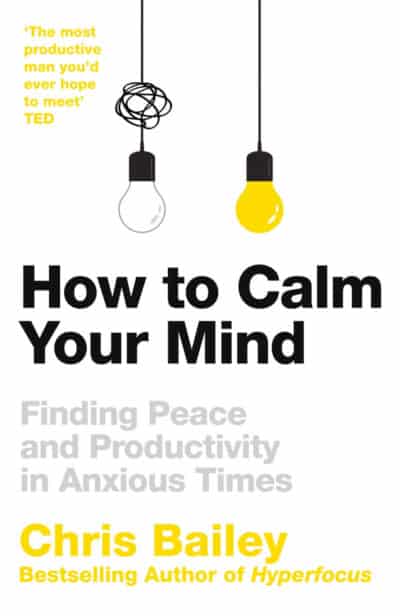

In this and the following articles in this series, you'll find short reviews and recommendations of the best books on self-improvement, personal development, and personal growth.
You will find more specific recommendations for self-help books in the following parts of the series:
- Books on professional and career development
- Books on motivation
- Books on time management and productivity
- Books on critical thinking
- Books on habits
- Books on persuasion
- Books on negotiation
- Books on memory improvement
- Books on financial literacy
Nonviolent Communication: A Language of Life
by Marshall B. Rosenberg, PhD
In the 1960s, psychologist Marshall B. Rosenberg developed the concept of Nonviolent Communication (NVC), a communication method designed to reduce misunderstandings and conflicts and promote a respectful, peaceful coexistence.
The approach emphasizes communication that is free of evaluations, judgments, accusations, and insults. Instead, it encourages recognizing and expressing one’s own feelings and needs, and empathetically listening to understand the feelings and needs of others.
In his book, Rosenberg describes the method in great detail, using numerous real-life conversational situations from various aspects of life. The book is easy to read and recommended for anyone looking to improve their communication skills and create connections based on empathy and mutual understanding.
However, learning the method from the book alone may be challenging. Especially in heated situations, it may be difficult to apply what you have read without intensive training. If you’re interested in training, simply search the internet for NVC seminars near you.
Suitable as an audiobook? Yes.
Quiet: The Power of Introverts in a World That Can’t Stop Talking
by Susan Cain
Our society is geared towards extroverts: Focus on group work is increasing, more and more companies are adopting open-plan offices, and self-promotion is essential for career advancement. Introverts are labeled as loners and are often dramatically undervalued.
Yet at least one-third of all people are introverts.
Susan Cain, in her New York Times bestseller, shows how important it is to understand introverts and give them a proper place in society. Introverts like Darwin, Einstein, Gandhi, Chopin, van Gogh, Rosa Parks have made great contributions to society.
The book helps extroverts understand why introverts are the way they are, what positive and helpful qualities they have, and when to listen to them.
And it helps introverts (like most of us programmers are) understand themselves (and their own contradictions) as well as a world dominated by extroverts, accept their traits and use them to their advantage.
Suitable as an audiobook? Yes, but I’ve read the printed version and therefore cannot judge the audiobook edition.
To go with the book, I recommend Susan Cain’s TED Talk “The power of introverts.”
Flow: The Psychology of Optimal Experience
by Mihaly Csikszentmihalyi
Nowadays, most people have heard the term "flow" before. It was the psychologist Mihaly Csikszentmihalyi who first described and named this concept in his book of the same name in 1990.
In his book, the author describes the scientific method he used to analyze flow, how people achieve the flow state, and how they feel about it.
Flow is a mental state of highest concentration achieved through clear goals, immediate feedback, and a balance between challenge and ability. In flow, people become wholly absorbed in an activity, block out everything else and achieve peak performance. They lose track of time and experience a feeling of euphoria and happiness.
According to the author, this happiness is more satisfying and fulfilling than the short-term pleasure people experience from, for example, aimless television or other non-challenging activities (these days, social media).
Flow can be found in many activities: in sports, music, intellectual pursuits, craft activities, and even on the assembly line.
The book is interesting, informative, pleasantly written, and worth reading both for people who regularly experience flow and for those who have not yet encountered it.
Suitable as an audiobook? Absolutely – I can highly recommend it. The author reads it himself, and it doesn't even sound read aloud, but as if the author is narrating loosely and freely.
The Untethered Soul: The Journey Beyond Yourself
by Michael A. Singer
Many people find themselves in a constant jumble of thoughts and inner dialogues or repeatedly experience painful memories of experiences from their past.
In “The Untethered Soul,” Michael A. Singer, world-renowned spiritual teacher and author of two New York Times bestsellers, takes us on a journey through consciousness, self-discovery, and spirituality and seeks to teach us how we can successfully process negative experiences and emotions so that they no longer dominate our lives.
He recommends practical exercises such as meditation and mindfulness to raise awareness of our perceptions and ultimately become an external observer of our thoughts rather than being controlled by them. Ultimately, this should lead to the ability to allow, recognize, and let go of painful thoughts and memories, culminating in lasting inner peace and unconditional happiness.
The book is easy to read, offers understandable metaphors, and is mostly grounded in reality. I have used some of the practices effectively to free myself from painful memories – albeit with the help of a professional coach – I couldn’t have done it with the book alone. At other times, however, the book is rather difficult to grasp, and the author puzzles the reader with phrases such as “Open your heart by not closing it.”
I can recommend the book as an introductory read to anyone struggling with fears, doubts, and painful memories and looking for inner peace and serenity. The book alone will not be a solution, but it will stimulate thought and self-reflection and can be a foundation for a life-changing journey.
Suitable as an audiobook? Yes.
Emotional Intelligence: Why It Can Matter More Than IQ
by Daniel Goleman
Emotions are an integral part of our lives. Not only our intellect – our IQ – determines how fulfilled and successful our life is, but at least to the same extent, if not more, our emotional intelligence.
Only through a well developed emotional intelligence can we fully utilize our abilities. The path to this goal leads through four stages:
Stage 1: Self-awareness – The foundation of emotional intelligence is the ability to recognize and name our own emotions.
Stage 2: Self-management – The ability to control our emotions – instead of letting them control us – means that we can decide if and how we react to certain situations.
Self-control is an essential skill for achieving our goals. People with high self-control are demonstrably more successful in life (as the famous Marshmallow Experiment has shown).
Level 3: Social Awareness – Understanding how people are affected by social situations, recognizing their emotions, and being able to respond appropriately makes us more outgoing, open, and popular.
Level 4: Relationship management – The ability to build and develop positive relationships and respond to others' emotions is essential for negotiation, conflict resolution, and team building.
I recommend this book to anyone who wants to understand and improve their own emotional intelligence – and all parents, because emotional intelligence cannot be trained early enough. When a child is angry, it can feel it, but it cannot express it until its parents have explained that it is "anger" that it feels.
Suitable as an audiobook? Yes.
Mindfulness in Plain English
by Bhante Henepola Gunaratana
“Mindfulness in Plain English” by Bhante Mahathera Henepola Gunaratana, a Buddhist monk with decades of meditation experience, is a practical introduction to Vipassana meditation (also known as insight or mindfulness meditation).
The author guides readers step by step through understandable explanations into the practice of meditation. He explains the correct physical and mental posture, preparation for meditation, and specific, detailed techniques for implementing it.
He dispels prejudices, answers frequently asked questions about meditation, and thoroughly addresses potential distractions that beginners, in particular, may face, offering practical advice on how to overcome them.
The book is written in clear, simple, inspiring language, free from religious beliefs, and also explains the background of mindfulness in understandable terms.
I recommend it to beginners (best in combination with a meditation app like Headspace) as well as to advanced practitioners who want to deepen their knowledge of mindfulness and might need one or two tips on how to deal with recurring distractions.
Suitable as an audiobook? Yes.
Digital Minimalism: Choosing a Focused Life in a Noisy World
by Cal Newport
Modern technologies such as smartphones and apps like Facebook, Twitter, and Instagram constantly distract us and keep us from the essential things in life. Instead of devoting ourselves to activities defined by our values, principles, and hopes, we mindlessly scroll through social media and news sites. Our well-being suffers from this more and more.
Instead of letting technology control us, we should use technology to our advantage. But how do we regain control? The author offers answers to this question.
First, we have to perform a "Digital Declutter": To do this, we examine every technology and every software to see to what extent it benefits us. Then we plan how we use the technology – for example, a maximum of two hours per week or only at certain times of the day. We don't have to sign off from Instagram or Facebook – but we could uninstall the apps from our phones and use the services for the things that matter to us on a desktop computer. We could limit the answering of e-mails and WhatsApp messages to two or three blocks per day.
Besides, it is a good idea to place our phones out of sight from time to time, so that we don't have to reach for it at the slightest sign of boredom. Instead, we should use solitude and boredom to concentrate on our thoughts, meditate, or go for a walk.
Finally, we should review the quality of our leisure activities. Instead of mainly consuming or passively interacting with screens, we should educate ourselves, exercise, create something, play a musical instrument, or engage in other mental or physical activities. Don't you also feel much better after an active leisure activity than after a passive one?
The book is enjoyable to read and contains numerous practical tips. A clear recommendation for all those who feel they are wasting too much time with Instagram, Facebook, Twitter, or other apps. It is also for those who constantly check their e-mails and feel that they can't do their actual work anymore.
Suitable as an audiobook? Yes, absolutely, and it is read by the author himself.
* This is not entirely our fault – we are made downright addicted, as this report shows: The Social Dilemma
Spark: The Revolutionary New Science of Exercise and the Brain
by John J. Ratey
Exercise is not only good for the body but also for the mind. Regular aerobic exercise sharpens the intellect, promotes learning, and makes the brain fit for top mental performance. It reduces stress, lifts mood, boosts motivation, and protects against diseases such as depression, dementia, and attention deficit disorder – all from childhood to old age.
Why is that?
Aerobic exercise strengthens the cardiovascular system, thus ensuring the transport of sufficient nutrients to the brain and promoting the production of neurotransmitters and hormones responsible for the growth of brain cells ("neurogenesis") and their connections with each other.
Even though the author tries to describe the biological connections in an understandable way for laypeople, he sometimes delves deeply into the scientific background. You have to concentrate hard if you want to follow the explanations of which neurotransmitters are responsible for which functions. As a reading before going to bed, it is therefore only suitable to a limited extent.
I recommend the book to those who want to understand the scientific background in detail. To all others, I recommend regular exercise :-)
Suitable as an audiobook? Yes.
The Happiness Project
by Gretchen Rubin
Gretchen Rubin is a lawyer, successful author, happily married, has two children, and lives in a beautiful apartment in New York City. One rainy day, she wonders what it actually means to be happy. She decides to start a “Happiness Project.” Her goal is to not take for granted what is important to her in life but rather to cultivate and appreciate it.
She takes on twelve areas of her life, focusing on each for a month. She doesn't turn her life upside down; she simply tries to make small changes in her everyday life to bring more satisfaction to herself and her family.
She brings more order to her apartment, eats a little healthier, tries to nag less at her husband, becomes more patient with her children, and forms new friendships. Just as she shares her successes, she also openly discusses failures because not everything she tries on her journey of discovery works.
The book is a delightful, honest, and entertaining account of the author's personal Happiness Project. It is not a step-by-step guide; the author doesn't claim to know what makes you, as her reader, happy. Instead, she wants to inspire you to start your own happiness project, try different things, and ultimately make your life and the lives of those close to you a little better every day.
Suitable as an audiobook? Yes, and it is read by the author herself.
The Headspace Guide to Meditation and Mindfulness: How Mindfulness Can Change Your Life in Ten Minutes a Day
by Andy Puddicombe
In his bestseller, Andy Puddicombe, former Buddhist monk and founder of the "Headspace Foundation", introduces us to meditation and mindfulness – without any spiritual elements and with only ten minutes of commitment per day.
The book has three parts:
The first part introduces the importance and benefits of meditation. For example, meditation can reduce stress, promote concentration, positively affect sleep, and bring the mind to greater peace overall.
In the second part, the author describes simple but effective meditation techniques, especially the "Take 10" method, which can be easily integrated into a busy daily schedule.
The third part shows how to integrate meditation and mindfulness into daily life, such as walking, riding the subway, and even eating.
The book is excellently written. The casual writing style makes it easy to read, and numerous insightful metaphors help to understand how mediation works. Interesting stories by the author from various monasteries make this book quite entertaining.
The book does not replace the Headspace app – or vice versa. While the app goes into breadth with a variety of guided meditations, the book goes into depth. I can recommend both wholeheartedly.
Suitable as an audio book? Yes, and it is read by the author himself.
How to Calm Your Mind: Finding Peace and Productivity in Anxious Times
by Chris Bailey
Overtime at work, barely manageable private commitments, and the constant media overload lead many people to chronic stress, anxiety, and ultimately burnout.
Chris Bailey, bestselling author of “The Productivity Project” and “Hyperfocus,” has experienced this firsthand and describes in “How To Calm Your Mind” how he has regained peace, serenity, and contentment – all while remaining productive.
He provides concrete strategies and tools for identifying and eliminating hidden sources of stress (such as caffeine consumption), living more mindfully in general, breaking free from media addiction and constant performance thinking, and relaxing without guilt.
The book is grounded in research but also draws from the author’s numerous personal experiences, making it exciting and entertaining.
A must-read for anyone seeking tranquility and composure in the busy modern world.
Suitable as an audio book? Yes, and it is read by the author himself.











